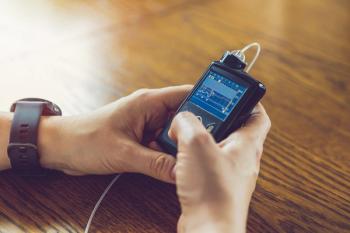
Low Rate of Disease Flare Following Recombinant Zoster Vaccine in Immune Mediated Inflammatory Diseases
Patients with immune mediated inflammatory diseases are at an increased risk of herpes zoster, but research on the risk of possible vaccine-related flares following vaccination with the recombinant zoster vaccine is limited.
Disease flares are not common in patients with immune mediated inflammatory diseases after vaccination with the recombinant zoster vaccine (Shingrix), according to research presented at ACR Convergence 2021, the annual meeting of the American College of Rheumatology.1
Researchers conducted a case series analysis to evaluate the risk of vaccine-related flares following RZV vaccination in adults aged 50 to 65 years with immune mediated inflammatory diseases—including rheumatoid arthritis, psoriatic arthritis, psoriasis, inflammatory bowel disease, and ulcerative colitis, among others—using medical claims data from the 2 databases. Flares were defined as either hospitalization or emergency department visit for their condition or treatment with Medrol Dosepak or steroid injection. Flare rates were compared from 1 to 42 days after vaccination (the risk window) vs 98 to 140 days before vaccination (the control window).
Investigators defined immune mediated inflammatory diseases using 3 criteria: 2 or more outpatient visits per conditions, 1 or more claim for a disease-specific medication and 1 or more visits to a specialist.
The study included 7,069 adults aged 50 to 64 and 72,434 adults 65 and older with both an immune mediated inflammatory disease and 1 or more dose of RZV. Among those aged 50 to 64, 10% of patients experienced disease flares during the control window, while 9% developed flares during the risk window following 1 or 2 doses.
Among patients 65 and older, 13% developed flares during the control window while, 11% to –12% developed flares during the risk window following 1 or 2 doses of the recombinant zoster vaccine. There was not a significant increase in flares following RZV vaccination for any immune mediated inflammatory disease in either age group following either 1 or 2 doses.
There were a number of study limitations, particularly with distinguishing vaccine-induced flares from reactogenecity, as well as identifying disease worsening related to distinguishing vaccine-induced flares from reactogenicity and disease worsening.
This observational study reveals new findings on the safety of [the recombinant zoster vaccine] in adults age ≥50with selected [immune mediated inflammatory diseases],” the researchers concluded. “Further evaluation of the safety of [the recombinant zoster vaccine] in this population is needed to inform vaccine policy recommendations and clinical guidance."
Reference
1. Curtis J, Su Y, Xie F, Clinton C.
Newsletter
Pharmacy practice is always changing. Stay ahead of the curve with the Drug Topics newsletter and get the latest drug information, industry trends, and patient care tips.























